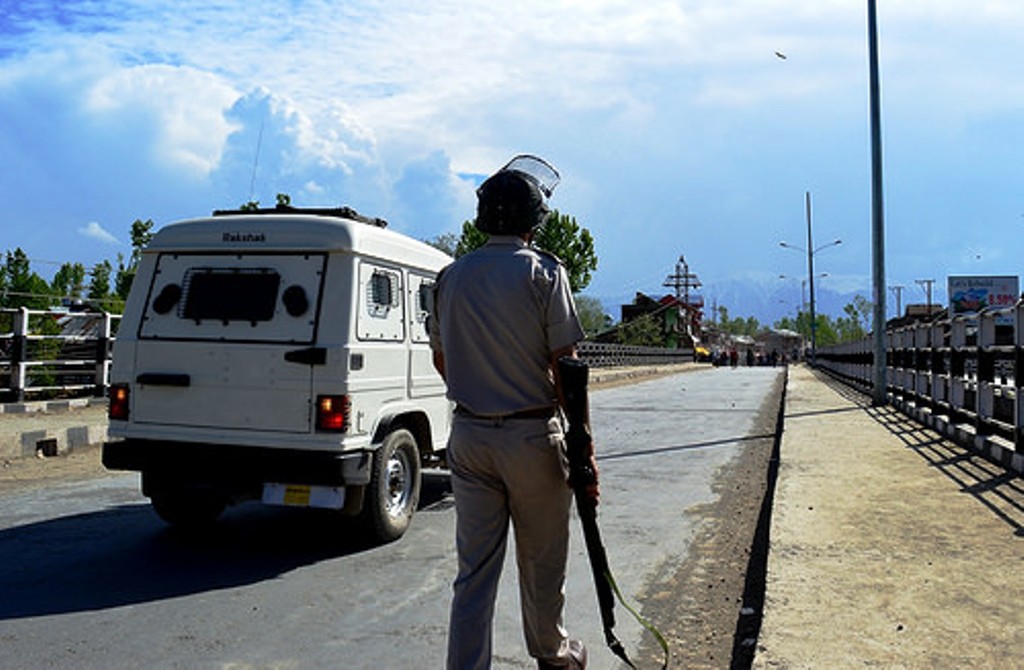2017 saw a surge in human rights abuses in Kashmir, claims Jammu Kashmir Coalition of Civil Society’s annual report

By TwoCircles.net Staff Reporter
Srinagar: The Jammu and Kashmir Coalition of Civil Society (JKCCS) in its annual report has claimed a surge in human rights abuses in Jammu and Kashmir as compared to 2016 with a total of 450 killings including civilians, militants and armed forces during 2017.
With widespread student protests witnessed in almost every district of the valley following armed forces’ assault on students in Pulwama Degree College in April 2017, the report says that hundreds of students were injured in clashes with the armed forces and many were arrested.
The report also claimed incidents of enforced disappearances in Kupwara and Handwara districts of the valley.
“This year there has been a significant increase in the abduction of civilians, many of whom after forced disappearances were killed extra-judicially. Seven reported cases of abduction, enforced or involuntary disappearances establish the continuance of disappearances in Kashmir and to belie the police chief’s statement. Out of the seven cases of abduction and disappearance, the dead bodies of five victims bearing bullet, torture and other injury marks were later recovered from various clandestine locations. Two of the victims continue to remain disappeared. These cases establish the resurfacing of the phenomena and practice of enforced disappearances in Jammu and Kashmir.”
The report has noted that the fate of government probes ordered into the four cases of civilian killings in 2016 has followed the same pattern as the other probes ordered by the government in the past. In the high profile case of Tufail Matoo, who was shot dead in 2010, the government has refused to share the findings of the Koul Commission report with the public, least of all with those who participated in the formation of the report and gave testimonies to the one-man commission, which was constituted by Omar Abdullah government to probe the civilian killings of 2010 and assign responsibility for the killings.
In last three years, by government’s own admission in September, as many as 1,059 PSA dossiers have been prepared against political activists and youth accused of stone-throwing.
“The much-abused practice of administrative detention in the form of Public Safety Act (PSA) continued to be used as a mechanism by the government to curtail and curb dissent,” reads JKCCS report.
The report has also shown a darker side of media and freedom of expression in the state. In 2017, as many as eight incidents of assault against journalists were reported in the valley, including the arrest of photojournalist Kamran Yousuf by India’s National Investigating Agency (NIA) in September. Yousuf continues to be in jail in New Delhi.
“Internet and social media continue to be the easy victims of government’s assault on freedom of expression, with frequent bans and gag orders becoming a routine practice. In December, the government in its 18-page order directed its employees to not post ‘political content’ on their private social media pages, sending a message that the government is intent on curtailing any discussion of the political and human rights situation in the valley,” JKCCS reported.
JKCCS further said that India continues to refuse access to UN High Commissioner for Human Rights to visit Kashmir for ascertaining human rights violations.
“This year in the month of March, the UN High Commissioner reiterated his demand to visit Kashmir which was refused by India. International Committee of the Red Cross (ICRC) team members and various other human rights activists and journalists have been repeatedly denied visas for visiting Kashmir. One such glaring case is of Edward Paul Comiti, a French journalist who visited Kashmir on a business visa but was arrested by the police and later discharged by the court,” reads the report.
“ This denial of access to UN delegates or denying visas to human rights activists and journalists only illustrates that the Government of India is scared of accurate information about widespread rights violations in Kashmir being disseminated,” it further added.
